
This World Hearing Day, we’re encouraging nature lovers to take a free online hearing check, after 73% of UK adults said they would miss the sounds of birds singing if they lost their hearing.
1 in 5 adults in the UK have hearing loss, but changes in your hearing can happen gradually and be difficult to spot. Missing the dawn chorus, or not being able to hear as many birds as you used to, could be signs that you need to get your hearing checked.
We asked more than 2,000 people about the role birdsong plays in their lives. We found that more than three quarters (76%) enjoy hearing birds singing, and 68% believe birdsong and sounds of nature are important to their overall well-being.
Missing the high-pitched calls and trills of birds is common for people who are experiencing undiagnosed hearing loss. For those who are missing out on the joyous and soothing sounds of nature, the solution could be simple.
Crystal Rolfe, Director of Health at RNID, said:
“Hearing loss can come on gradually and be difficult to spot, so it often takes people too long to get the support they need. Over 360,000 people have taken RNID’s online hearing check, and many of them tell us they are now rejoicing at hearing birds singing again thanks to their hearing aids.
“Hearing aids are a vital lifeline for millions of people in the UK – research shows that they may reduce cognitive decline, and they could even help you live longer, although more research is needed.
”We don’t want anyone to miss out on the joy of the sounds of spring, so we’re encouraging everyone to take our free online hearing check this World Hearing Day.”
Since taking a test and getting hearing aids, many people have been amazed at the tweets, chirps and warbles they had forgotten about or thought were lost, but are now able to enjoy once more. One person said, ‘There seem to be more birds in the garden!’ with another remarking ‘I can hear birdsong in all its glory.’
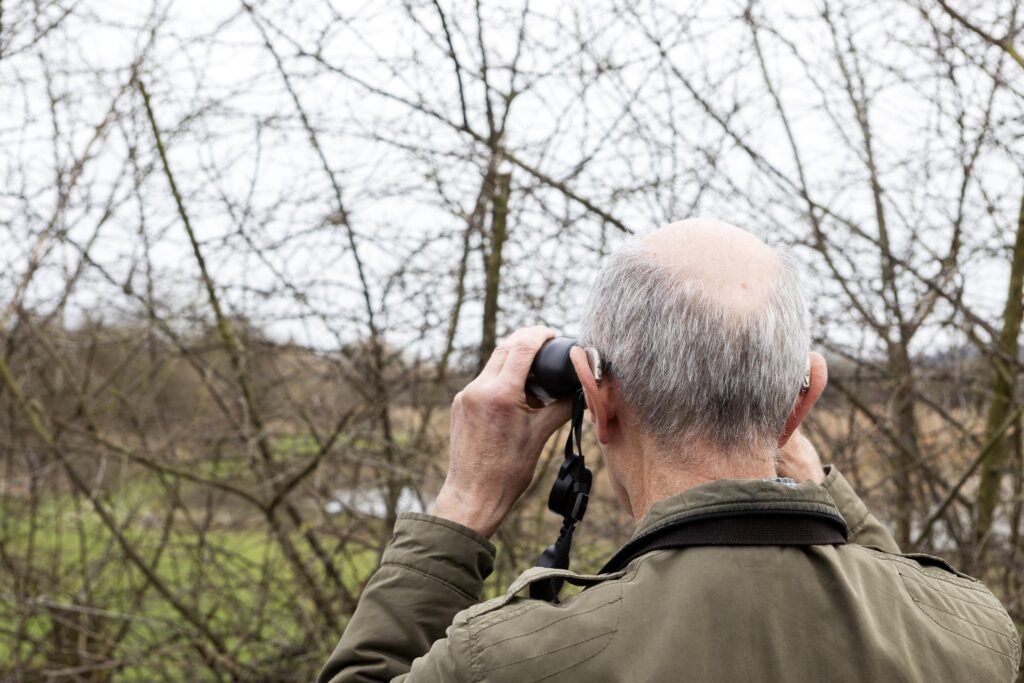
Geoffrey Marshall, from Derby, 76, is a keen birdwatcher and a regular visitor to his local nature reserve. He said:
“Bird-watching hours or even bird-watching days are part of most of our holidays; and I have enjoyed some spectacular sights during our travels; from trips to northern Israel, Armenia and Costa Rica, to the Orkneys and Farne Islands in Northumberland.
“My hearing loss happened gradually. For four or five years I had the TV a few notches higher than my wife, and even then I often found conversations indistinct and had to keep asking ‘What did they say?’ My family tried to persuade me to have my hearing tested for quite a long time, and eventually I got a free test and came out an hour later with a pair of NHS hearing aids.
“The contrast in sound is amazing. Shortly after I got my hearing aids we were staying in North Yorkshire for a couple of days and we took a long walk along a canal path. I had my hearing aids in and I was overwhelmed by the bird noises. I heard other things too, like the traffic on a wet road, but the birdsong was fantastic; I was hearing sounds I don’t ever remember hearing, and certainly more than my wife was hearing.”

Take the hearing check
Birds to listen out for in March
The pleasure of birds singing can increase even more as we get older. Of the people RNID surveyed, 71% of 35-44 year older said they enjoy birdsong, rising to 89% of people aged 55 and over.
With spring around the corner, the charity RSPB is encouraging people to get out into their local park, garden or greenspace and spot the birds.
RSPB’s top five birds to listen out for in March are* :
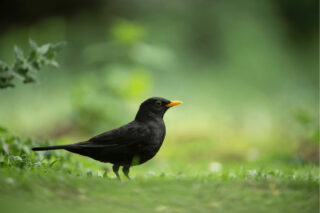
Blackbird
Blackbirds are one of the most common birds found across the British Isles. One of the star performers of the dawn chorus, they have a deep, mellow song but can also mimic sounds such as human whistles and ambulance sirens, thought to make themselves more attractive to mates.
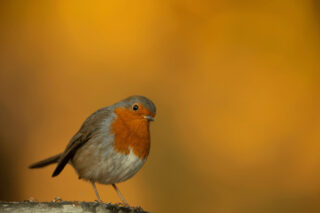
Robin
Robins are perhaps the UK’s most iconic bird. They sing for most of the year to defend their territories from intruders, and their song is similar to a Blackbird song, but with a higher pitch. Robins are often the first birds to start singing in the morning, and the last ones to stop in the evening.
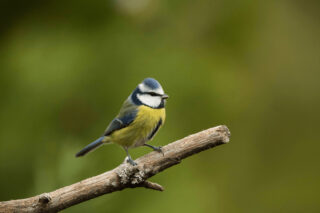
Blue Tit
These colourful birds are one our most recognisable garden birds with their vibrant mix of blue, yellow, green and white, along with their black bandit mask. You’ll recognise the musical, high-pitched sweet trill of the Blue Tit as they serenade our gardens, woodlands and farmlands. They only join in the orchestra of the dawn chorus when it becomes light enough for them to see.
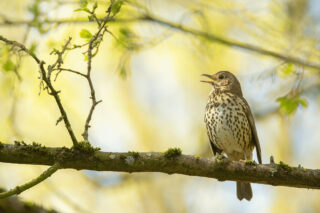
Song Thrush
The Song Thrush is a beloved garden visitor with a loud, beautiful song – they definitely live up to their name! Song Thrushes have a lot of different sounds that make up their songs. They tend to repeat phrases a few times over, then move on to repeating a new sound. This habit of repeating song phrases sets Song Thrushes apart from singing Blackbirds.
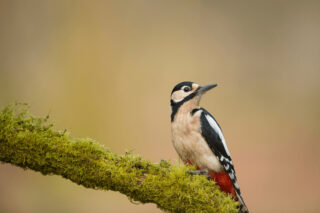
Great Spotted Woodpecker
The presence of a Great Spotted Woodpecker is often announced by their loud, sharp ‘kik’ call but they are perhaps more fondly known by their distinctive spring drumming display as they proclaim their breeding territories.
* Bird images credit: RSPB
Take the RNID hearing check today and enjoy a richer world of sound.